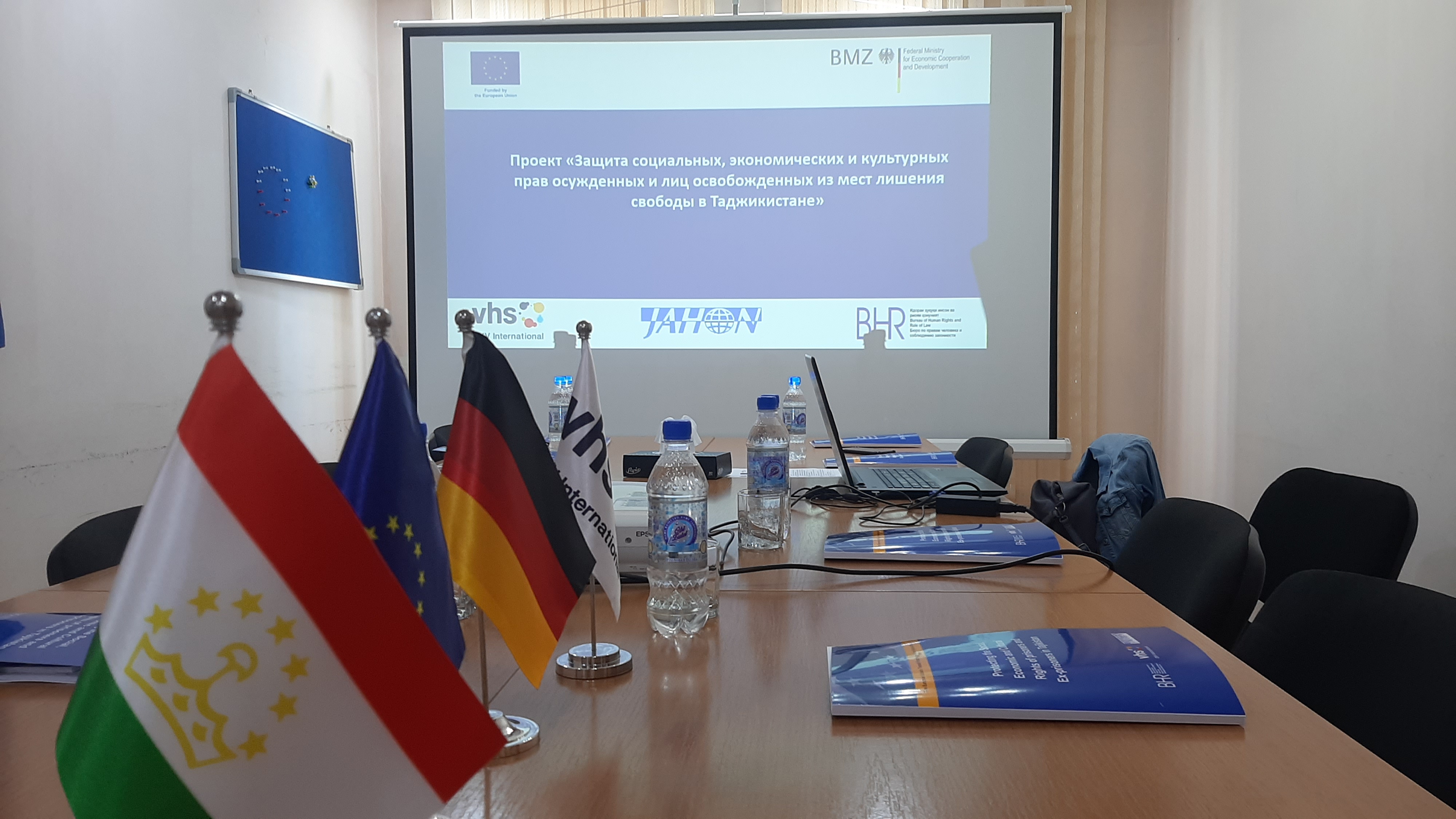
On June 4, 2024, the third meeting of the coordinating committee for the project Protection of Social, Economic, and Cultural Rights of Prisoners and Ex-Prisoners in Tajikistan was held at the country office of the Institute for International Cooperation of the German Adult Education Association (DVV International) in Tajikistan. This project is funded by the European Union and the German Federal Ministry for Economic Cooperation and Development (BMZ). It is implemented through the Representative Office of DVV International in Tajikistan in partnership with the public organizations “Jahon” and the “Bureau for Human Rights and Rule of Law.”
The meeting was attended by project coordinators, representatives of ministries and state committees, public organizations, and international organizations. The meeting began with an opening speech by Zarina Khalikova, Director of the DVV International Representative Office in Tajikistan. Following this, Shahlo Abdunabizoda, Director of the public organization "Jahon," presented the results of an analysis of the legislative and regulatory acts of the Republic of Tajikistan regulating the activities of criminal punishment institutions in preparing prisoners for release. According to Abdunabizoda, a group of specialists conducted a comprehensive analysis to prepare convicts for release, ensure their social adaptation, and prevent repeat offenses. Based on the results, they made several recommendations for changes and additions to the legislative acts of the Republic of Tajikistan.
“In particular, the internal documents of penal institutions, including the characteristics of the convict, should record the level of intellectual development, stability of feelings, relationships with other convicts, and self-esteem of convicts. At the same time, the activities of psychologists in correctional institutions should be intensified. The head of a correctional institution, based on the recommendations of a psychologist, can carry out legal, moral, labour, physical, and sanitary activities, personal hygiene compliance, and general and vocational training of convicts,” Abdunabizoda emphasized.
Nargis Zokirova, Director of the Bureau for Human Rights and Rule of Law, spoke about the successes of former convicts who, as part of the project, were offered legal assistance, training, and grants for starting their own business. “One of the problems in the way of employment of former convicts is that at the stage of preparing documents for employment, all state enterprises and commercial organizations ask them for a certificate of good conduct. Usually, after submitting this type of document, employers do not accept such persons, which is why they remain unemployed. Refusal to work to former convicts will be another reason for their separation from society, which will become a factor in re-offending. This process must find a solution."
As Zokirova noted, one way to solve this problem is to involve former convicts in social entrepreneurship. As part of the project, beneficiaries were trained in the legal foundations of doing business and drawing up a business plan, and training sessions were held. “As a result of the competition, 11 participants (including one woman) from different regions of the country were provided with grants in the form of working equipment. Now all grant recipients are successfully carrying out their activities in this area and feading their families with this source of income,” Zokirova said, emphasizing the importance of involving more women among former prisoners in such events.
Continuing, Khosiyat Makhmudova, Director of the State Institution "Adult Education Center of Tajikistan" under the Ministry of Labour, Migration, and Employment of Tajikistan, stated that to date, more than 2,700 convicts and former convicts have completed short-term courses, including training as gas welders, confectionery workers, carvers, construction workers, and other qualifications suitable for the labour market. By the end of 2024, this number is expected to reach 5,000 people.
During the event, satisfaction was expressed with the effective activities of public organizations and their direct cooperation with government agencies in implementing this project. Stakeholders were able to do important work by providing legal, psychological, and material assistance to convicts and former convicts.
In conclusion, participants exchanged views and voiced useful proposals for expanding cooperation in this direction.